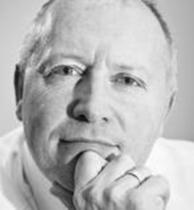Bobby Charlton: Football's great champion turns 80
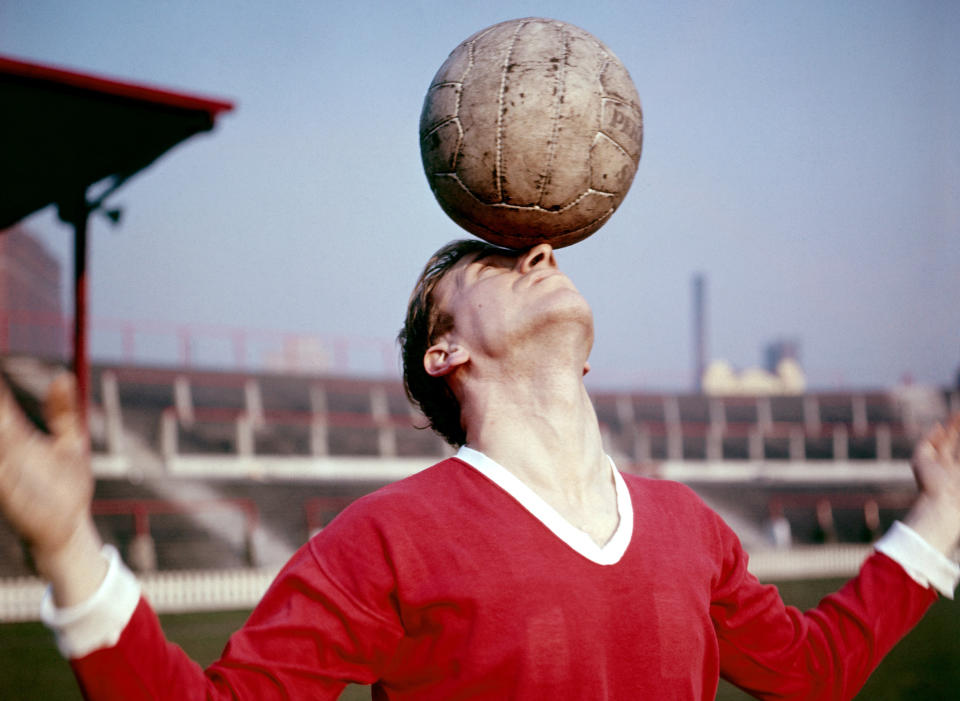
Few have left a greater mark on football than mesmerising midfielder and all-round gentleman Sir Bobby Charlton, who turns 80 on Wednesday.
A key member of the Busby Babes and a survivor of the Munich air crash of 1958, a wonderful 17-year career at Manchester United dovetailed with a remarkable time with England which peaked with World Cup glory in 1966.
This champion of the north-west is a son of the north-east, born in Ashington, Northumbria, on October 11, 1937.
While his second cousin Jackie Milburn became one of the greatest players in Newcastle’s history and brother Jack joined Leeds, Bobby’s path led to Old Trafford.
READ MORE: Gossip – Real Madrid and Barcelona chase Kane AND Alli
READ MORE: Anfield ‘transformed Sir Alex into a beast’, reveals Neville
READ MORE: Man Utd Fan View – Why Fellaini’s injury is a huge blow
Having impressed a United scout while playing for East Northumberland Boys on a frozen pitch at Jarrow, the shy 15-year-old who turned up at United in a green ankle-length raincoat would quickly flourish in the red.
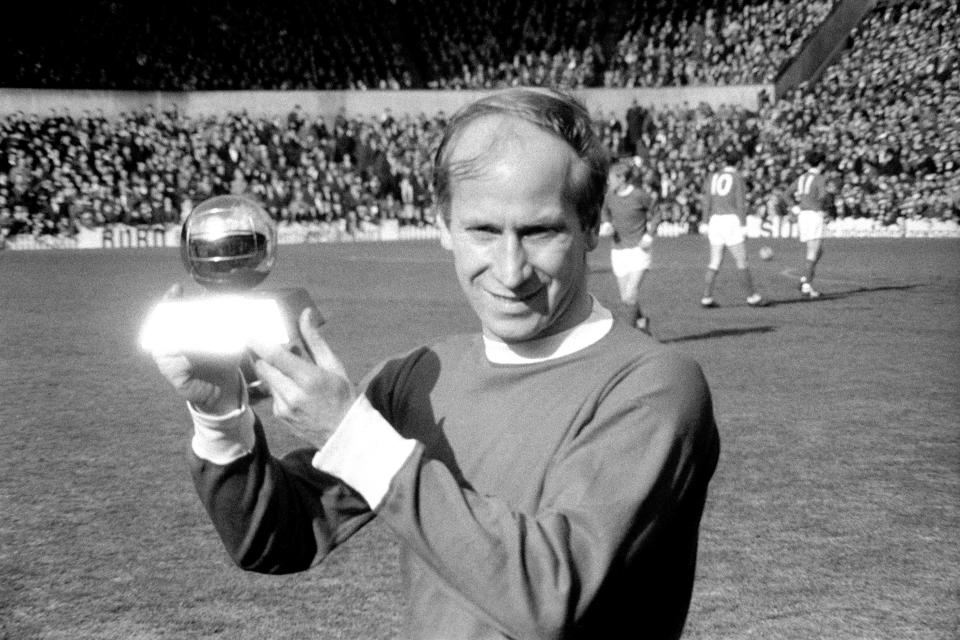
Charlton won the FA Youth Cup in three successive years up until 1956, when he made his senior league debut against Charlton on October 6, scoring twice in a 4-2 win.
It was the kind of display that set the tone for a remarkable club career which was in its infancy when Sir Matt Busby’s swashbuckling side won the First Division in 1957.
Tragically the Busby Babes were cut off in their prime, as so many friends and team-mates perished on the runway in Munich after their plane crashed on the way back from a European Cup tie at Red Star Belgrade on February 6, 1958.
READ MORE: Stuart Pearce exclusive – on Arsenal, Man Utd, Tottenham and more
Charlton was engulfed with terrible regret and sadness, but chose to draw strength from those around him rather than submit to the impact of the catastrophe and somehow returned to action on March 1 despite being injured in the crash himself.
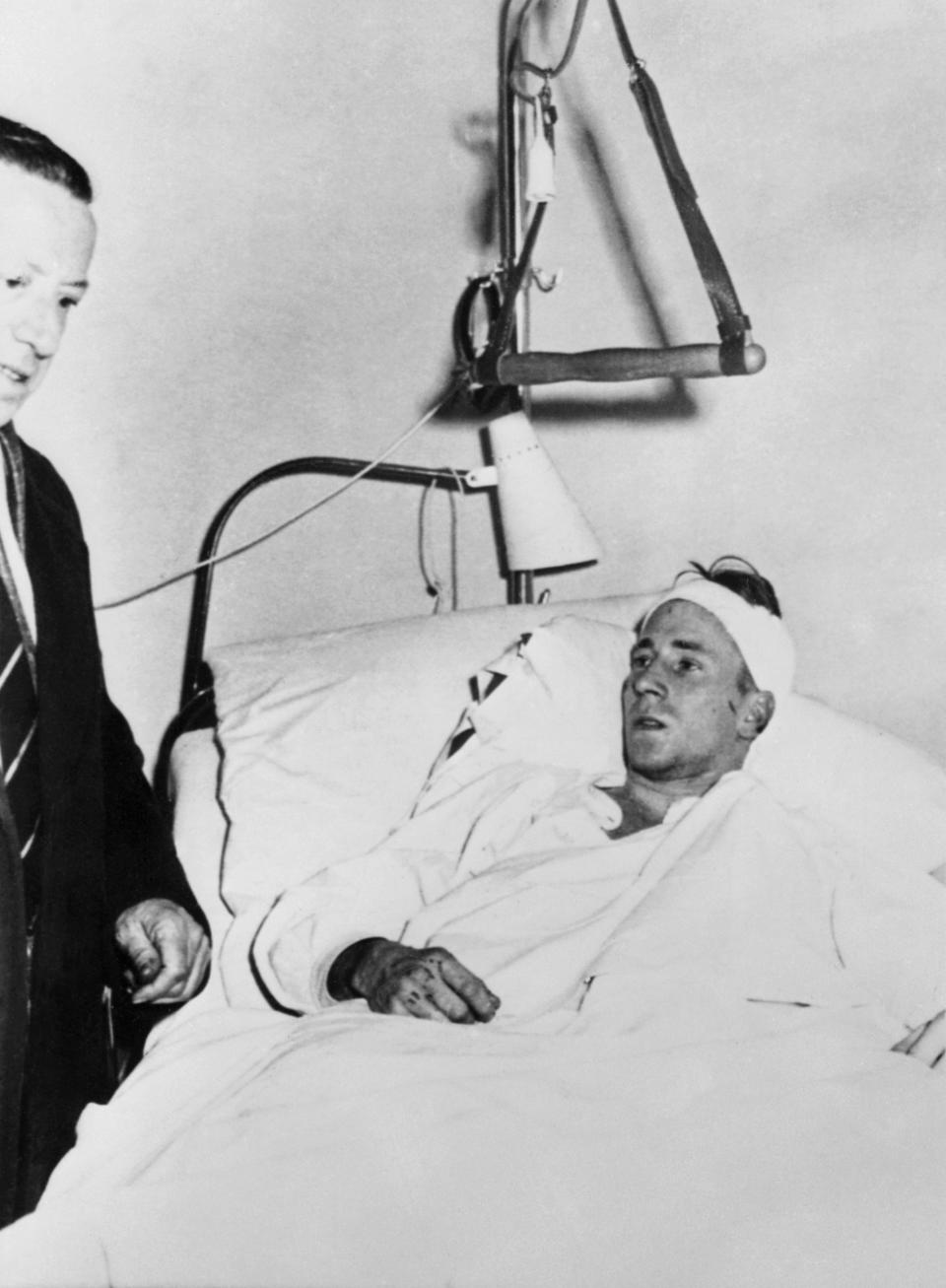
He would become integral to rebuilding the United team, with the FA Cup triumph of 1963 a catalyst which set the club on course for more success.
First Division titles arrived in 1965 and 1967, either side of the most famous moment in English football history.
Charlton likened playing at Wembley as a schoolboy to arriving in paradise – and his dreams came true there.
Champions
His brace in the 1966 World Cup semi-final defeat of Eusebio-inspired Portugal was followed by a quieter display in the final against West Germany, but it mattered not as England triumphed 4-2 after extra-time to be crowned champions of the world.
Charlton would also win the Golden Ball award as player of the tournament, and also won the Ballon d’Or and Football Writers’ Footballer of the Year honours in 1966.

Wembley would witness another moment to cherish for Charlton two years later.
Part of United’s heralded ‘Holy Trinity’ alongside Denis Law and George Best, he scored twice in a 4-1 extra-time win against Benfica in the European Cup final as United became the first English champions of the continent.
That victory capped the post-Munich rebuilding, with Charlton opting out of post-match celebrations to remember those not fortunate enough to be there.
It proved the last major honour of a United career which spanned 758 games and featured 249 goals. He left the club in 1973, before working briefly as player-manager at Preston and a stint in Ireland with Waterford United
A brief spell as director and caretaker manager of Wigan followed before returning to United in 1984 and becoming a club director – a position he still holds today, along with his ambassadorial role at the club.
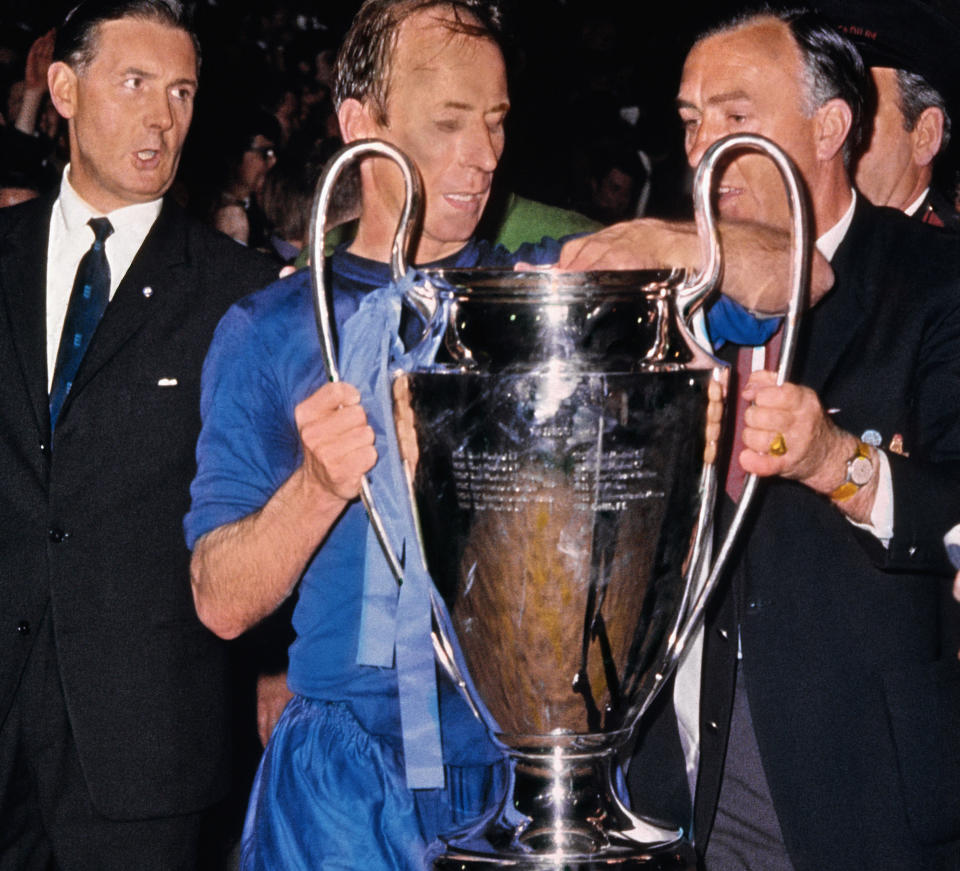
Charlton continued to be a huge figure at United, greeting new players and watching them home and away with his wife Norma.
Away from sport, he founded the ‘Find A Better Way’ charity in 2011, having seen first-hand the humanitarian damage caused by landmines on visits to Cambodia and Bosnia-Herzegovina.
The organisation’s goal is to help fund research and development for those teams ridding the world of the threat of landmines, underlining the kind-hearted nature of a man whose impact on the football landscape is indelible.
Awarded an OBE in 1969 and CBE in 1974, he was knighted in 1994 and given the BBC Sports Personality of the Year Lifetime Achievement Award in 2008.
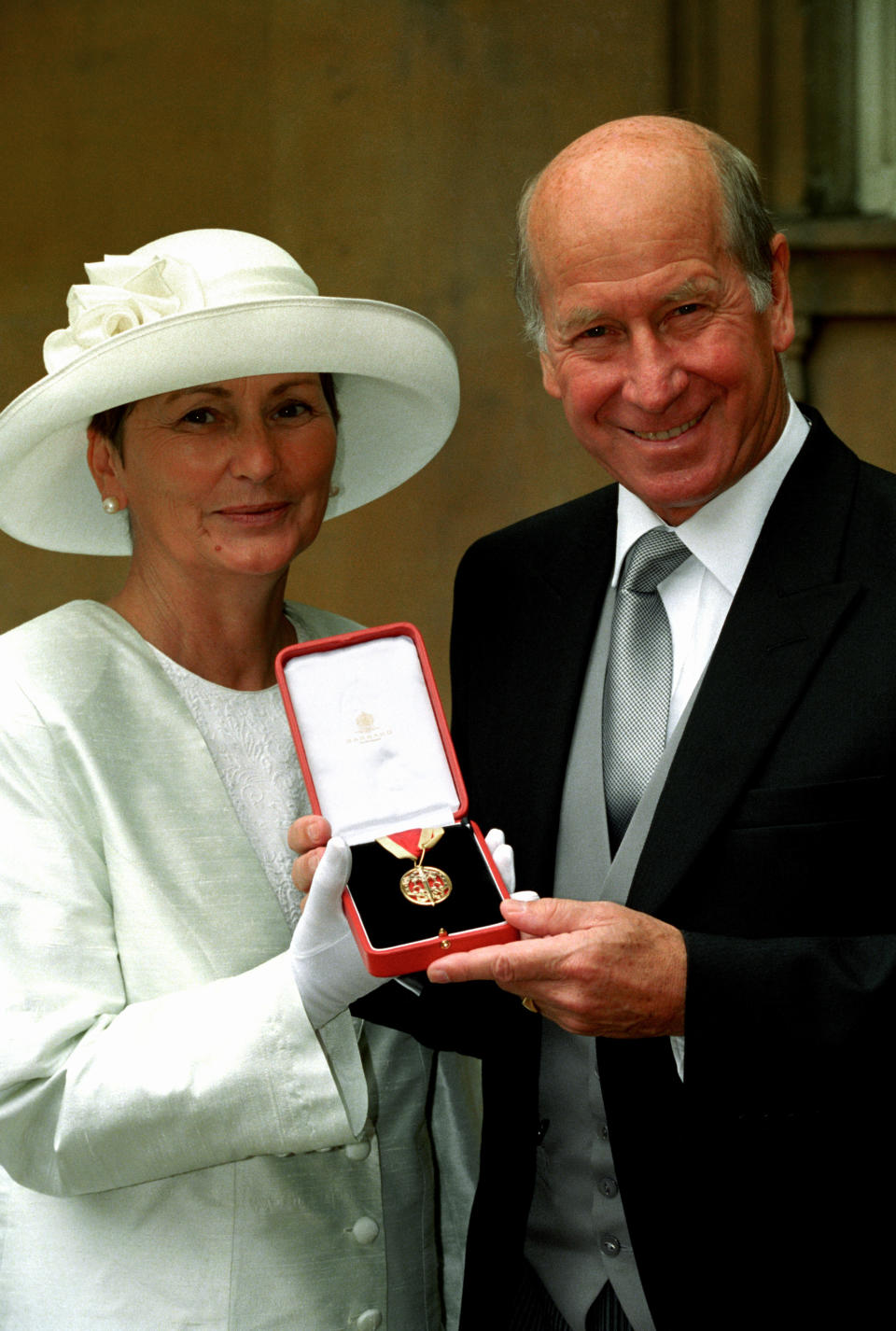
Old Trafford’s South Stand carries his name and the statue of the ‘Holy Trinity’ watches over the ground where he made so many memories, having made the second-most United appearances and scored the second-most goals.
Charlton’s 106 caps for England and 49 goals – second only to Wayne Rooney – have not been forgotten either and just last week Charlton had a pitch at the St George’s Park training complex named after him.
“I hope so much that you will do everything that you want to do with the World Cup,” Sir Bobby told the current England squad with a tear in his eye.
”I know that the manager has the ability and I do hope that you can give me one of the greatest memories of my life.”
